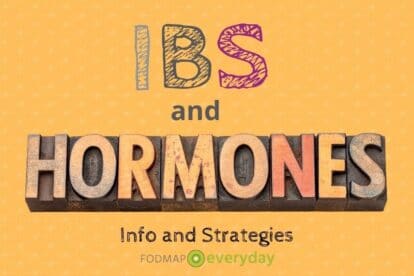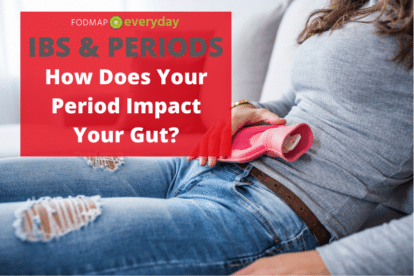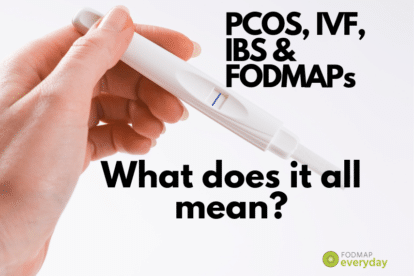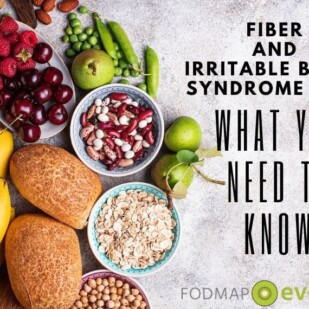There are different ways to approach the low FODMAP diet. The Low FODMAP “Gentle” Diet might be right for you.
The low FODMAP diet has been shown to be effective in reducing symptoms of IBS, with around 70% of individuals studied showing marked improvement, however the multi-phased diet is quite restrictive and complex, and can be challenging to follow, or even harmful, in certain situations.
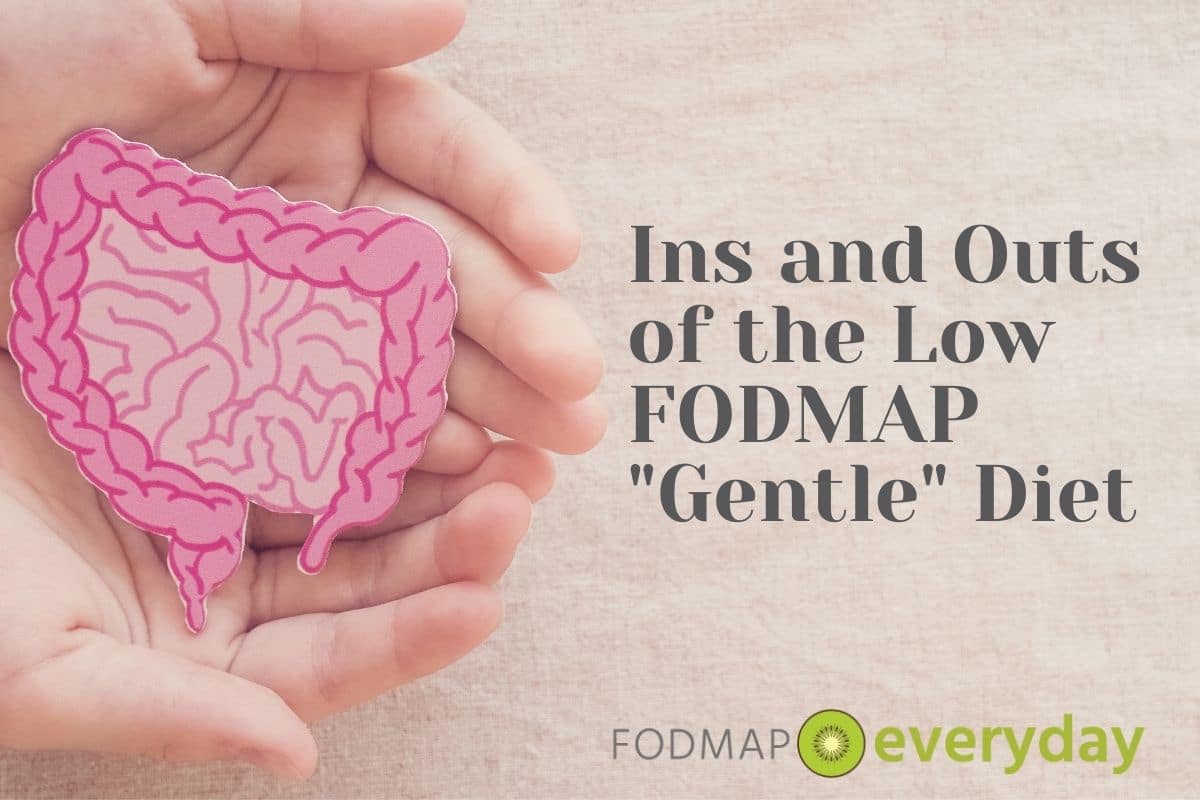
Research and clinical practitioners (such as dietitians, doctors and gastrointestinal specialists) alike have found that there are certain cases where a modified version of the diet may be both safer and more efficacious.
- How Does the Low FODMAP Gentle Diet Differ from the Standard Low FODMAP Diet?
- Gentle Means Easier, Too
- Who is The Low FODMAP Gentle Diet Best Suited For?
- Nutritionally At-Risk Individuals
- Children
- Women During Pregnancy
- Individuals with Concurrent Medical Issues & Compromised Immune Systems
- Other Restrictive Diets & Personal Choice
- Eating Disorders and Cyclic Dieting
- Individuals with Constipation-Predominant IBS (IBS-C)
- Individuals with Limited Access to Healthcare
- Additional Reasons
- The Takeaway
How Does the Low FODMAP Gentle Diet Differ from the Standard Low FODMAP Diet?
While both the standard Low FODMAP diet (LFD) and the Low FODMAP Gentle Diet (FODMAP Gentle) follow the same three phase approach to systematically identify food triggers for IBS symptoms – 1. Elimination Phase, 2. Challenge Phase and 3. Integration Phase – the FODMAP Gentle approach reduces the number of foods to be eliminated from one’s diet to just a handful, versus dozens of foods which are reduced or eliminated for the standard LFD.
Less restriction offers more dietary flexibility for individuals and can reduce stress, improving overall quality of life. (And it’s important to note that stress is a major trigger for IBS symptoms).
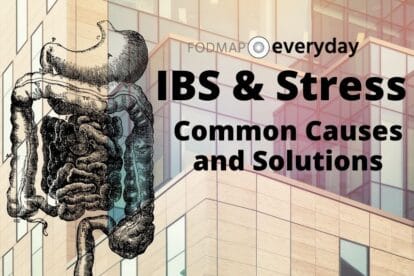
You may want to read: IBS & Stress: Common Causes and Solutions
Gentle Means Easier, Too
FODMAP Gentle eliminates only the foods highest in FODMAPs; foods shown to trigger symptoms in the majority of individuals, even in small quantities. Specifically, FODMAP Gentle recommends eliminating only the following foods during the first phase of the diet:
- Beans and pulses, including lentils, dried and most canned beans, soybeans and hummus
- Fruits (and fructose-rich foods): apples, dried fruit, fruit juices, mango, pears, stone fruits, watermelon. Also: agave, honey.
- Grains: wheat, barley, rye
- Lactose-rich products: dairy milk, some yogurts, some soft cheeses
- Vegetables: cauliflower, garlic, leek, mushrooms, onion
The standard LFD, on the other hand, limits a much wider variety of foods, beverages and ingredients during the Elimination Phase. This large-scale approach is useful for some individuals for sure, and I use it often in my own nutrition practice with clients, but in some cases, it can be “over-kill” or downright problematic.
Who is The Low FODMAP Gentle Diet Best Suited For?
This scaled down version of the more restrictive low FODMAP elimination diet may be most appropriate for a variety of individuals, including those at risk for nutritional deficiencies, children who are still growing, individuals in the throes of disordered eating or eating disorders and/or other individuals for whom an extremely limited diet may prove less-than-healthy.
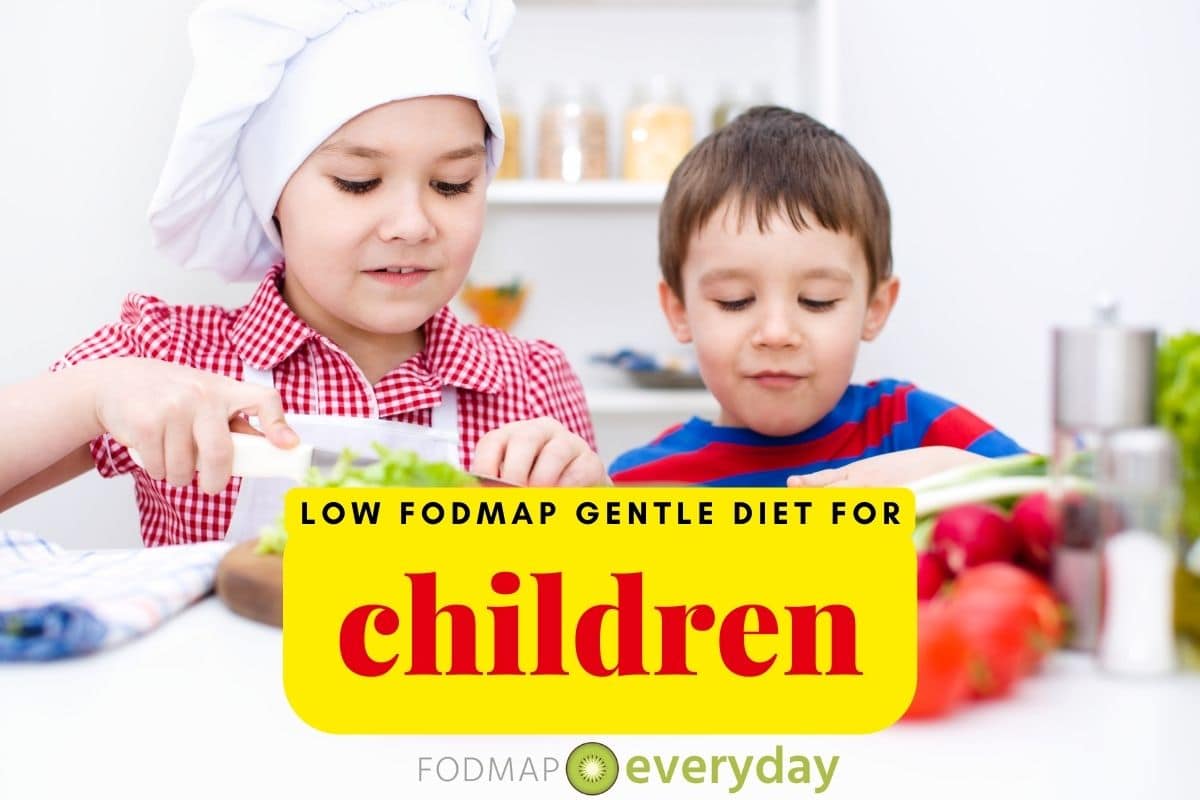
You may want to read: Low FODMAP Gentle Diet for Children
Low FODMAP Gentle may also be more appropriate for those who are unable to work with a dietitian, as most research shows that the low FODMAP diet is most successful at providing IBS relief when delivered under the guidance of a properly trained low FODMAP dietitian.
Let’s explore in more detail why some individuals may benefit from FODMAP Gentle or a scaled-down approach to the LFD:
Nutritionally At-Risk Individuals
Highly restrictive elimination diets are not recommended for individuals who may be at risk for malnutrition or who have certain comorbid conditions in addition to IBS. Due to the significant reduction in dairy products, grains and certain fruits and vegetables, the traditional LFD Elimination Phase may be quite low in certain nutrients, including calcium, vitamin D, iron and prebiotic fiber.
Children
Children are notorious picky eaters and may risk developing nutritional deficiencies by further limiting their diets. In addition, there are several high growth periods during childhood, including both early childhood and adolescence, where children are growing rapidly and need more nutrients than usual.
We have more general information in our article, IBS in Children: What Do You Do?
Women During Pregnancy
Pregnant women also have increased nutritional needs in order to support a healthy pregnancy and may suffer nutritionally from a highly restricted diet. Thus, a modified low FODMAP approach such as FODMAP Gentle that only limits a few target foods may be best for most children and pregnant women.
You can read more about Pregnancy & IBS in these articles:
Breastfeeding on a Low FODMAP Diet
Pregnancy & IBS Series: Morning Sickness
Hormones & IBS: Strategies to Improve Hormone Induced IBS Symptoms
IBS & Periods – How Does Your Period Impact Your Gut?
Pregnancy & IBS Series: Postpartum Nutritional Needs & IBS
Pregnancy & IBS Series: PCOS, IVF, IBS & FODMAPs – What does it all mean?
Individuals with Concurrent Medical Issues & Compromised Immune Systems
In addition, individuals who may have a weakened immune system (such as individuals with multiple autoimmune disorders or those undergoing chemotherapy for cancer) or impaired nutrient absorption (due to medications, aging, congenital conditions or surgical changes to the gastrointestinal tract) should also pay close attention to their nutrient intake. Careful consideration of the balance between IBS symptom management and nutritional adequacy is critical to maintaining overall health.
Other Restrictive Diets & Personal Choice
Finally, individuals who already follow a limited or restricted diet as a result of medical conditions (for example celiac disease, diabetes or epilepsy) or personal choice (such as vegetarian, vegan or low carb dietary regimens) should also carefully consider their dietary needs before embarking upon a further restricted diet such as the LFD in order to ensure properly balanced nutrition and avoid nutrient deficiencies.
To read more about following a low FODMAP diet as a vegan this series of articles will be helpful.
Vegan and Low FODMAP Series
Can a Vegan or Vegetarian Go Low FODMAP?
Expert Tips on Nutrition For Vegans Following The Low FODMAP Diet
Converting Conventional Low FODMAP Recipes To Vegan Recipes
Eating Disorders and Cyclic Dieting
There is significant overlap in both the symptoms and the prevalence of functional gut disorders (FGD), such as IBS, and eating disorders (ED), such as anorexia nervosa, bulimia nervosa, binge eating disorder, and ARFID (avoidant/restrictive food intake disorder; characterized by extremely selective eating patterns and highly limited numbers of “safe” foods).
These overlaps show up in the form of a range of gut issues such as constipation, slow digestion or gastroparesis, acid reflux and similar in individuals who have drastically restricted their food intake or undergone cycles of bingeing and purging over a long period of time.
In many cases, these changes to the gut may not be recognized as symptoms of the eating disorder, and the individual may instead seek care for a suspected FGD. It’s important to realize that further restriction of food in such a situation is not only inappropriate, but it can be quite dangerous to the patient, both nutritionally and psychologically.
Thus, the LFD diet is contraindicated in individuals with diagnosed (or suspected) eating disorders, and it is critical that healthcare providers assess patients properly for any history of eating disorders, disordered eating or cyclic dieting before recommending dietary changes.
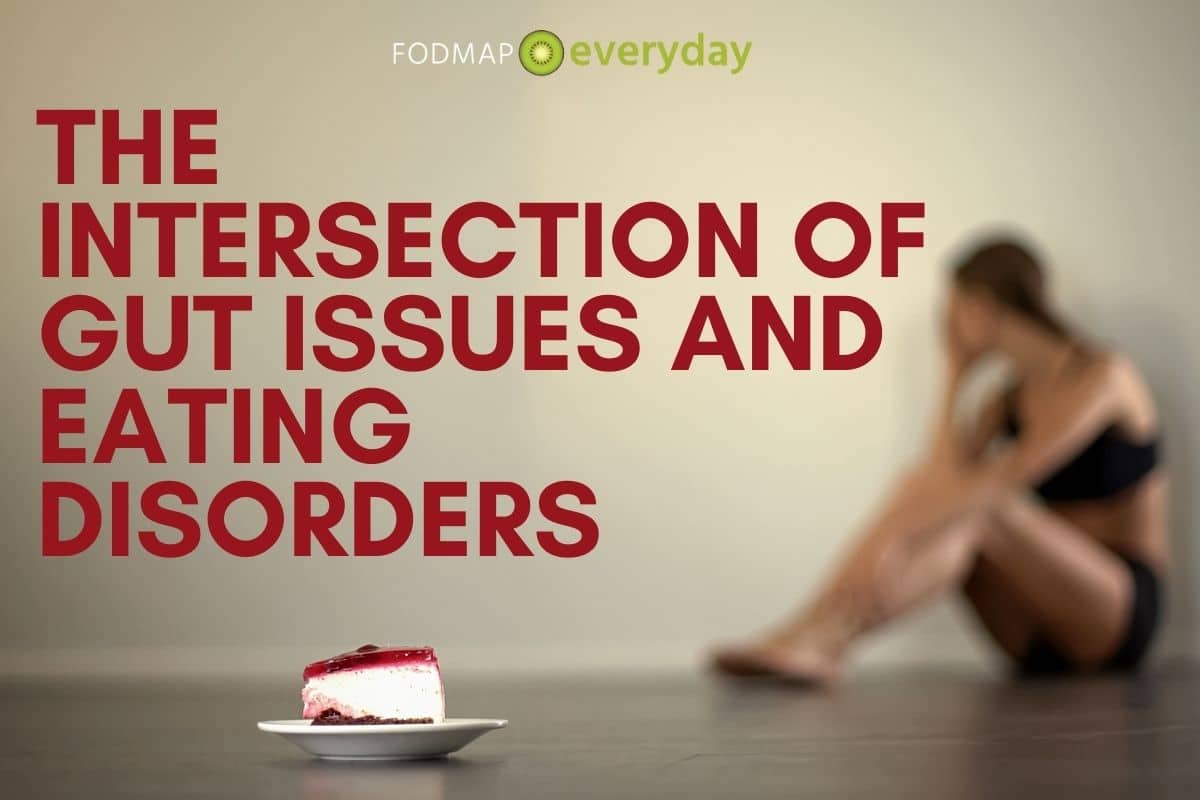
You may want to read: The Intersection of Gut Issues and Eating Disorders
Individuals with Constipation-Predominant IBS (IBS-C)
By design, the low FODMAP diet significantly reduces fiber intake (including fruits, vegetables and grains) from an individual’s diet temporarily. While careful planning can ensure continued sufficient fiber intake, some individuals with IBS-C may find that their symptoms are exacerbated rather than improved during the LFD elimination phase.
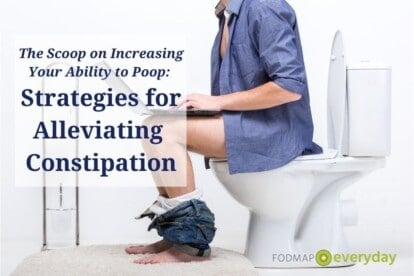
You may be interested in reading: Strategies for Alleviating Constipation
Additionally, some individuals diagnosed with IBS-C may be improperly diagnosed, as there are other conditions that can also cause long-term constipation, such as functional constipation or pelvic floor dysfunction. In these latter cases, massively reducing FODMAPs may not be a significant advantage.
Instead, treatments such as reducing intake of certain constipating foods or adding medications, fiber supplements, physical activity and/or physiotherapy may be more appropriate.
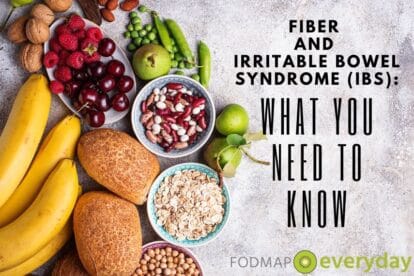
You may want to read: Fiber and IBS: What You Need To Know
Individuals with Limited Access to Healthcare
As mentioned above, the standard LFD has been shown to have greater success when undertaken with the guidance of a trained healthcare team, especially an LFD-trained dietitian.
Due to the complexity of the diet and the highly variable nature of each individual’s specific symptoms and health status, it can be very challenging for individuals to “interpret” the results of any particular food elimination or challenge on their own.
This often translates into further restriction, where IBS sufferers eliminate more and more foods from their diet hoping to avoid symptoms, or cases where individuals never make it past the Elimination Phase, which is also quite problematic. Therefore, if you don’t have access to trained FODMAP specialists, it may be better to start with FODMAP Gentle in order to walk a path that is safer, but still likely to provide a significant degree of symptom relief.
For an at-home approach, with dietitian guidance, consider Joe Leech’s Diet vs. Disease Reboot Program.
Additional Reasons
It should also be noted that other strategies for reduction of IBS symptoms may also be preferable to dietary restriction for some individuals in order to avoid long-term nutritional consequences that can arise from dietary restriction.
Lifestyle strategies such as meditation or gut-directed hypnotherapy, yoga or other gentle exercise, and certain supplements or OTC medications (such as fiber supplements, peppermint capsules, herbal teas and the like) can provide significant relief in many cases.
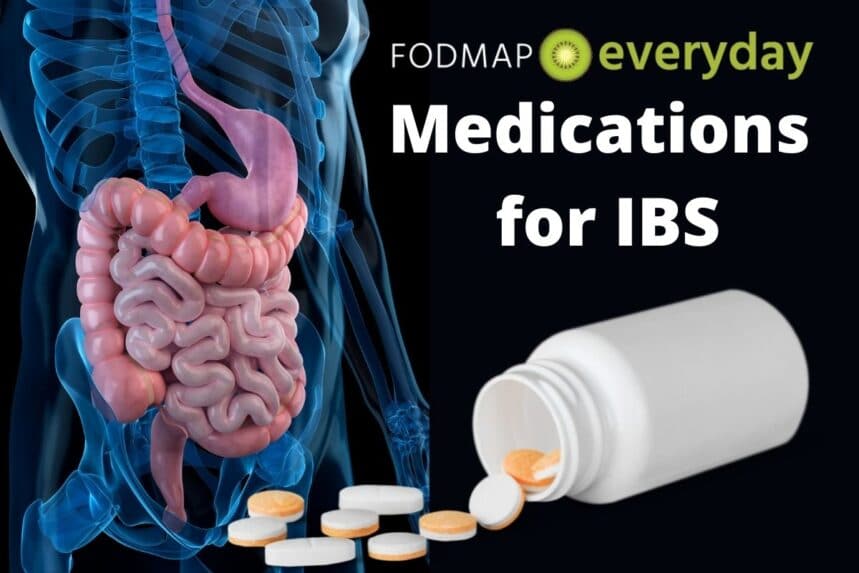
You May Want To Read: Medications for IBS
The Takeaway
The low FODMAP diet is a powerful tool in the IBS treatment toolbox. However, individual nutritional requirements will vary, requiring a personalized and flexible approach to treatment of IBS. Talk with your doctor and dietitian about which approach(es) may be best for you, your lifestyle and your long-term health.
If you are unable to access the services of a FODMAP-trained specialist, there are a number of online groups that allow for some (albeit very limited) support with the diet, including some groups that are moderated by trained dietitians. It’s important to note, however, that these groups are not a true substitute for expert advice.
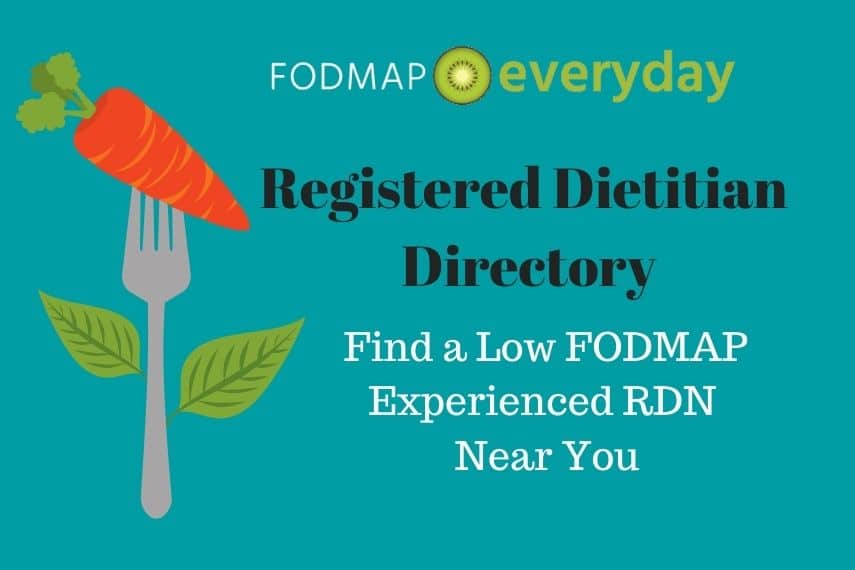
Looking for a dietitian who is experienced in the low FODMAP diet? Check out our global directory here.
Resources:
- Gibson, P. (2017). The evidence base for efficacy of the low FODMAP diet in irritable bowel syndrome: is it ready for prime time as a first-line therapy? Journal off Gastroenterology and Hepatology, 32, 32-35. doi: 10.1111/jgh.13693
- Hill P, Muir JG, Gibson PR. Controversies and Recent Developments of the Low-FODMAP Diet. Gastroenterol Hepatol (N Y). 2017;13(1):36-45.
- Wang X, Luscombe GM, Boyd C, Kellow J, Abraham S. Functional gastrointestinal disorders in eating disorder patients: altered distribution and predictors using ROME III compared to ROME II criteria. World J Gastroenterol. 2014;20(43):16293-16299. doi:10.3748/wjg.v20.i43.16293
- Eating Disorders and GI Symptoms. (2021). Retrieved 12 January 2021, from https://www.todaysdietitian.com/newarchives/100614p14.shtml
- IBS-C: New Treatments Deliver Promising Management. (2021). Retrieved 12 January 2021, from https://www.healthline.com/health/ibs-c/new-treatments#Medications-currently-or-newly-approved-for-IBS-C
- Hypnotherapy hope for IBS. (2021). Retrieved 12 January 2021, from https://lens.monash.edu/@medicine-health/2019/06/24/1351605/how-hypnotherapy-is-helping-people-suffering-from-irritable-bowel-syndrome-ibs#:~:text=A%20major%20clinical%20study%20into,nausea%20by%20up%20to%2072%25.
- Peters, S., Yao, C., Philpott, H., Yelland, G., Muir, J., & Gibson, P. (2016). Editorial: gut-directed hypnotherapy or low FODMAP diet for the treatment of irritable bowel syndrome? Authors’ reply. Alimentary Pharmacology & Therapeutics, 44(8), 902-903. doi: 10.1111/apt.13791


